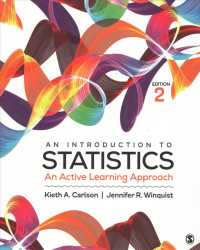Full Description
Since Pauline Konga's breakthrough performance at the 1996 summer Olympics in Atlanta, the world has become accustomed to seeing Kenyan women medal at major championships, sweep marathons, and set world records. Yet little is known about the pioneer generation of women who paved the way for Kenya's reputation as an international powerhouse in women's track and field. In Kenya's Running Women: A History, historian and former professional runner Michelle M. Sikes details the triumphs and many challenges these women faced, from the advent of Kenya's athletics program in the colonial era through the professionalization of running in the 1980s and 1990s. Sikes reveals how over time running became a vehicle for Kenyan women to expand the boundaries of acceptable female behavior. Kenya's Running Women demonstrates the necessity of including women in histories of African sport, and of incorporating sport into studies of African gender and nation-building.
Contents
Contents Acknowledgments Introduction Chapter One. The Gendered Development of Athletics in Colonial Kenya: Warriors, Raiders, and Gentleman Amateurs Chapter Two. Nation, Race, Gender, and Athletes' Rights in the Early Independence Era: The Case of Diana Monks Chapter Three. Precocious Achievement and the Long Run to Inclusion: Marriage, Motherhood, and the Military Chapter Four. The World Beckons: Kenya, Title IX, and the Expansion of Women's Track and Field Chapter Five. I Have a Whole Battalion that Depends on Me: Professionals, Patrons, and Pioneers of Women's Running in Kenya Conclusion Notes Bibliography Index








